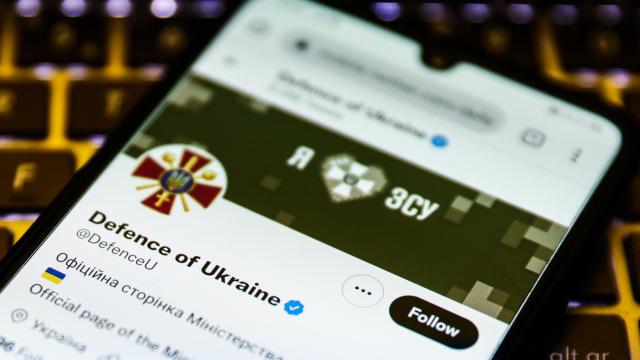Faced with a powerful Russian army at its doorstep, Ukraine once again affirmed that it would not go down without a fight. Just as the government called for civilian volunteers to fight against the invasion, it was now seeking volunteer hackers to launch cyber attacks against Russian businesses, banks, and government entities.
On Saturday, Ukrainian vice prime minister Mykhailo Fedorov announced on Twitter that the country was creating an “IT Army.” He called on those with digital talents to join the effort and “fight on the cyber front.” Fedorov said that the army would be organising in a Telegram chat room, where volunteers would be able to complete “operational tasks.”
Although the first task on the channel is for cyber specialists, the vice prime minister explained, there will be tasks for everyone.
We are creating an IT army. We need digital talents. All operational tasks will be given here: https://t.co/Ie4ESfxoSn. There will be tasks for everyone. We continue to fight on the cyber front. The first task is on the channel for cyber specialists.
— Mykhailo Fedorov (@FedorovMykhailo) February 26, 2022
When Gizmodo viewed the Telegram group on Sunday, it had more than 194,000 subscribers. The first task encouraged members to “use any vectors of cyber and DDoS attacks” on the websites of 31 Russian business corporations, banks, and government entities.
Targets included natural gas heavyweight Gazprom, oil and gas company Lukoil, and internet company Yandex, among many others. In the financial sector, the IT Army singled out Sberbank, VTB, and Gazprombank, some of the country’s top banks. Russian government entities on the list included the Kremlin and the Ministry of Defence.
For those who are not technically advanced enough to launch cyber and DDoS attacks, the IT Army had a different task: report Russian YouTube channels that spread misinformation about the war in Ukraine. Channels highlighted by the Telegram group included state-owned media outlets Russia 24, TASS, and RIA Novosti.
It’s not clear whether the group has successfully taken down any Russian websites or YouTube channels, although there have been disruptions. Overall, Russia isn’t having an easy time in the tech world, which is increasingly taking measures to support Ukraine. Following a move by Meta, formerly known as Facebook, Google on Saturday banned Russian state media from monetising their websites, apps, or YouTube videos.
In addition, SpaceX CEO Elon Musk responded to a request from Fedorov, Ukraine’s vice prime minister, on Saturday asking him to provide the country with Starlink stations.
“Starlink service is now active in Ukraine. More terminals en route,” Musk tweeted.
Starlink service is now active in Ukraine. More terminals en route.
— Elon Musk (@elonmusk) February 26, 2022
